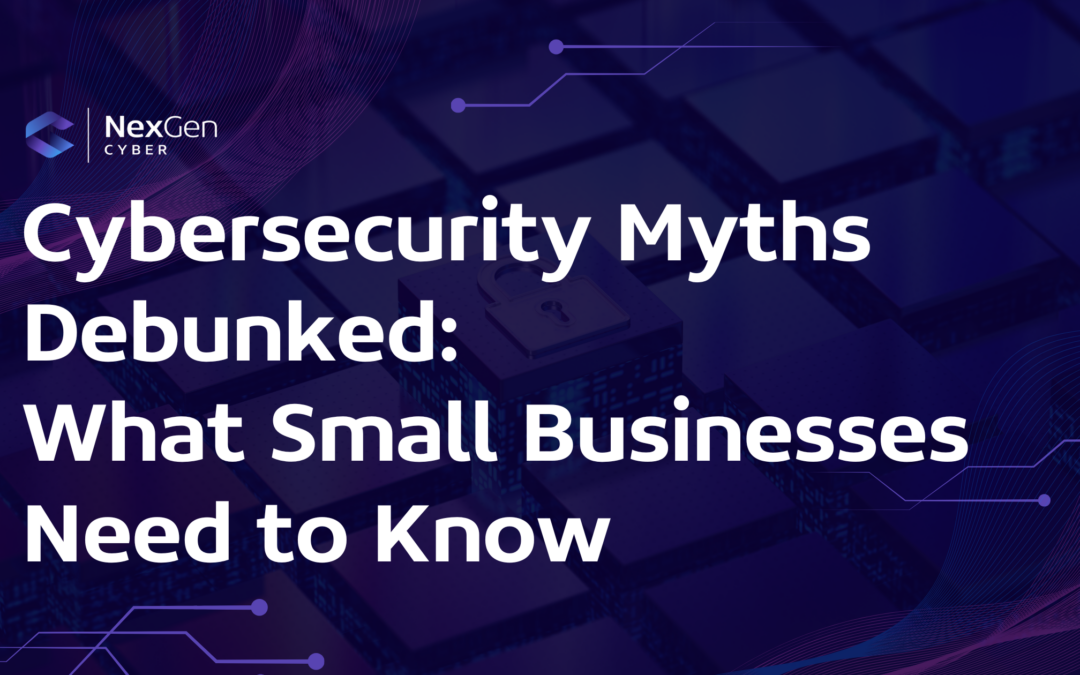When you’re running a small business, it’s easy to assume that cyber threats are only a problem for big organisations with millions to lose…
But the reality is quite different.
With cyber criminals constantly evolving their tactics, misinformation can leave businesses vulnerable.
So, let’s set the record straight by tackling some of the most common cybersecurity myths and what small businesses should really be focusing on.
“We’re too small to be targeted by cybercriminals”
This is one of the biggest misconceptions out there.
Many small business owners assume hackers only go after major corporations, but in reality, small businesses are a prime target.
Why?
Because they often lack the robust security measures that larger organisations have in place.
Cybercriminals see them as low-hanging fruit, easy to exploit and less likely to have the resources to fight back.
Small businesses store valuable data too, whether that’s customer information, payment details, or intellectual property, and with the rise of automated cyber-attacks, criminals don’t necessarily pick and choose their victims.
If your business has an online presence, you’re at risk.
“Strong passwords are enough to keep us safe”
A strong password is a great start, but it’s only part of the picture.
Cybercriminals have an arsenal of tools designed to crack even the most complex passwords.
That’s why businesses should implement multi-factor authentication (MFA) wherever possible.
It adds an extra layer of security by requiring users to verify their identity through something they have (like a mobile device) or something they are (such as a fingerprint or facial recognition).
Passwords should also be unique for each account.
If one gets compromised, reusing it elsewhere could lead to multiple breaches. A password manager can help keep things organised without the need to remember dozens of different logins.
“Antivirus software will protect us from all cyber threats”
Having antivirus software in place is important, but it’s not a silver bullet. Today’s cyber threats go beyond viruses and include ransomware, phishing attacks, and social engineering scams.
Relying solely on antivirus software is like locking your front door but leaving the windows wide open.
A strong cybersecurity strategy should include regular software updates, firewalls, employee training, and secure backup solutions.
Cybersecurity isn’t just about having the right tools, it’s about knowing how to use them effectively.
“Cybersecurity is IT’s responsibility, not ours”
It’s easy to think of cybersecurity as something only the IT department needs to worry about, but that couldn’t be further from the truth. Cybersecurity is a team effort, and every employee has a role to play in keeping the business safe.
Human error is one of the biggest causes of security breaches, whether it’s clicking on a dodgy link, reusing passwords, or falling for a phishing email.
Regular training and awareness programmes can go a long way in helping staff recognise potential threats and act accordingly.
When cybersecurity is built into the company culture, the entire business becomes more resilient.
“We’ll deal with cybersecurity when we grow”
Some businesses put off cybersecurity measures, thinking they’ll sort it out once they’ve scaled up. But waiting until you’ve been hacked is like waiting until your house is on fire before buying smoke alarms.
Prevention is always better than cure.
Starting with basic security practices now will save you time, money, and stress in the long run. Investing in cybersecurity early on means you’re protecting your business, your customers, and your reputation from day one.
Plus, demonstrating good security practices can even be a selling point for customers who want to know their data is in safe hands.
The reality: cybersecurity is a business essential
Cybersecurity isn’t just for big corporations with dedicated IT teams and huge budgets. Small businesses are just as much at risk, and ignoring security could have serious consequences. But the good news is that protecting your business doesn’t have to be complicated or expensive.
By debunking these myths and taking simple, proactive steps, small businesses can significantly reduce their risk and create a safer digital environment.
Cybersecurity isn’t about fear, it’s about awareness, preparedness, and making informed choices to keep your business secure.

